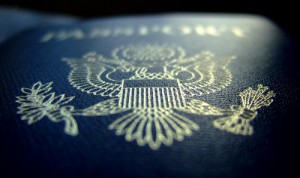
Our office received approval of the I-601 Application of Waiver of Grounds of Inadmissibility for the foreign husband of a U.S. citizen spouse who was subject to a life-time bar from being admitted to the United States for conviction of multiple crimes involving moral turpitude under INA Section 212(a)(2)(A)(i)(I) and fraud/misrepresentation under INA Section 212(a)(6)(C)(i).
The applicant’s U.S. citizen spouse contacted my office for assistance in obtaining a waiver of both INA Section 212(a)(6)(C)(i) and 212(a)(2)(A)(i) after their previously filed I-601 waiver application (prepared by their previous attorney) was denied. In that first denial, the applicant’s past criminal convictions (“Infliction of Bodily Injury on another Individual”) were deemed by USCIS to be a “violent or dangerous crime” (8 C.F.R.) § 212.7(d).
USCIS does not generally exercise favorable discretion to approve a waiver under INA § 212(h) in cases involving violent or dangerous crimes unless there are extraordinary circumstances present (8 C.F.R.212.7(d)), which include national security considerations; foreign policy considerations; or cases in which the refusal of admission would result in “exceptional and extremely unusual hardship”:
Criminal grounds of inadmissibility involving violent or dangerous crimes. The Attorney General, in general, will not favorably exercise discretion under section 212(h)(2) of the Act (8 U.S.C. 1182(h)(2)) to consent to an application or reapplication for a visa, or admission to the United States, or adjustment of status, with respect to immigrant aliens who are inadmissible under section 212(a)(2) of the Immigration & Nationality Act in cases involving violent or dangerous crimes, except in extraordinary circumstances, such as those involving national security or foreign policy considerations, or cases in which an alien clearly demonstrates that the denial of the application for adjustment of status or an immigrant visa or admission as an immigrant would result in exceptional and extremely unusual hardship. Moreover, depending on the gravity of the alien’s underlying criminal offense, a showing of extraordinary circumstances might still be insufficient to warrant a favorable exercise of discretion under section 212(h)(2) of the Act. 8 C.F.R. §1212.7(d)
In other words, not only did our client’s initial I-601 waiver prepared by their previous attorney get denied; their situation was made worse by the USCIS classifying the applicant’s crimes as being “violent or dangerous.”
We prepared a comprehensive I-601 waiver package including a 45 page legal memorandum arguing that the past criminal convictions of our client are neither “crimes involving moral turpitude” nor “violent or dangerous”; the extenuating circumstances surrounding our client’s failure to disclose these convictions on a prior ESTA application (which led to a finding of fraud/misrepresentation by the U.S. consular officer during his immigrant visa interview); and the exceptional and extremely unusual hardships and compelling discretionary factors present in this case.
As part of our immigrant waiver preparation process, we always provide a comprehensive waiver worksheet containing a thorough array of questions for our clients to answer about their lives. This allows us to “brainstorm” every relevant factor (such as medical, physical, psychological, financial, legal, or other hardships) that may apply. We then analyze each factor and decide upon the most effective way to present it to the USCIS in our waiver application.
Our waiver worksheet also contains a long checklist of supporting documents to gather and present based upon our experience with successful waiver applications submitted during the past 20+ years.
Overall, our waiver preparation process is constantly improved upon since we regularly prepare and submit winning immigrant waiver applications for clients who come from countries throughout the world. We are proud to receive multiple approvals on I-601, I-601A, I-212, and 212(d)(3) waiver applications filed on behalf of our clients every single month.
After our I-601 waiver package was submitted and our clients experienced an excessively long delay in receiving a decision from USCIS, I filed a Writ of Mandamus lawsuit against USCIS in the Federal District Court of the Central District of California on behalf of my client.
As part of the Writ of Mandamus lawsuit filed against USCIS, I negotiated with a Special Assistant United States Attorney from the U.S. Department of Justice to reach a favorable outcome for my client. As a result, USCIS not only approved our client’s I-601 waiver, but we were able to get attorneys at the U.S. Department of State to remove the prior finding that our client’s criminal convictions consistuted “crimes involving moral turpitude” altogether.
Section 212(a)(2)(A) of the INA states, in pertinent parts:
(i) Any alien convicted of, or who admits having committed, or who admits committing acts which constitute the essential elements of-
(I) a crime involving moral turpitude (other than a purely political offense) or an attempt or conspiracy to commit such a crime . . . is inadmissible.
(ii) Exception.-Clause (i)(I) shall not apply to an alien who committed only one crime if-
(I) the crime was committed when the alien was under 18 years of age, and the crime was committed (and the alien was released from any confinement to a prison or correctional institution imposed for the crime) more than 5 years before the date of the application for a visa or other documentation and the date of application for admission to the United States, or
(II) the maximum penalty possible for the crime of which the alien was convicted (or which the alien admits having committed or of which the acts that the alien admits having committed constituted the essential elements) did not exceed imprisonment for one year and, if the alien was convicted of such crime, the alien was not sentenced to a term of imprisonment in excess of 6 months (regardless of the extent to which the sentence was ultimately executed).
The Board of Immigration Appeals (BIA) held in Matter of Perez-Contreras, 20 I&N Dec. 615, 617-18 (BIA 1992), that:
[M]oral turpitude is a nebulous concept, which refers generally to conduct that shocks the public conscience as being inherently base, vile, or depraved, contrary to the rules of morality and the duties owed between man and man, either one’s fellow man or society in general.. ..In determining whether a crime involves moral turpitude, we consider whether the act is accompanied by a vicious motive or corrupt mind. Where knowing or intentional conduct is an element of an offense, we have found moral turpitude to be present. However, where the required mens rea may not be determined from the statute, moral turpitude does not inhere.
We specifically highlighted in our I-601 waiver that determinations of whether a foreign conviction constitutes a Crime Involving Moral Turpitude (CIMT) requires a categorical analysis, one limited to the elements of the statutory offense, without reference to the specific acts of the individual that satisfy those elements.
This approach is codified in the Foreign Affairs Manual at 9 FAM 40.21(a) N2.1 “Evaluating Moral Turpitude Based Upon Statutory Definition of Offense and U.S. Standards.”
To render an alien ineligible under INA 212(a)(2)(A)(i)(I), the conviction must be for a statutory offense, which involves moral turpitude. The presence of moral turpitude is determined by the nature of the statutory offense for which the alien was convicted, and not by the acts underlying the conviction. Therefore, evidence relating to the underlying act, including the testimony of the applicant, is not relevant to a determination of whether the conviction involved moral turpitude except when the statute is divisible (see 9 FAM 40.21(a) N5.2) or a political offense (see 9 FAM 40.21(a) N10). The presence of moral turpitude in a statutory offense is determined according to United States law. [Emphasis in original].
The FAM list examples of specific offenses that qualify as CIMT including crimes involving fraud, larceny, and intent to harm persons or things. [9 FAM 40.21(a) N2.2]. The manual also provides a list of offense which do not constitute CIMT, which list includes:
Assault (simple) (i.e., any assault, which does not require an evil intent or depraved motive, although it may involve the use of a weapon, which is neither dangerous or deadly) [9 FAM 40.21(a) N2.3-3(b); emphasis added].
We re-iterated in our review of the legal standard for classifying a foreign offense as a CIMT, that the USCIS must not consider any of the evidence of the underlying act. Rather, the USCIS must engage in an analysis of the elements of the foreign statutory offense. For a foreign offense to qualify as a CIMT, one of the elements of the offense must be a Mens Rea or specific intent on the part of the offender to cause harm to person or things, or, in the words of the BIA in Perez-Contreras, an intent showing “vicious motive or corrupt mind.” Id. at 617-18.
Thereafter, we analyzed the elements of the foreign criminal statute that our client was found guilty of, and proved that this statute does not contain the mens rea, or intent to inflict harm. Additionally, we noted that the Foreign Affairs Manual of the U.S. Department of State does not permit classification of a crime of “simple assault” as a CIMT. Rather, assaults criminalized by law may only be classified as a CIMT if an element of the offense “requires an evil intent or depraved motive.” [9 FAM 40.21(a) N2.3-3(b)].
In support of our legal analysis, we also included the legal opinion of a foreign criminal lawyer who noted that in the home country of the applicant, the disposition of a punishment of fine is imposed when the offense is not serious and very minor.
As a result of the detailed legal arguments made in our I-601 waiver application, along with my advocacy on behalf of my clients in federal court, the attorneys at the U.S. Department of State agreed that the applicant’s prior criminal convictions do not constitute crimes involving moral turpitude and withdrew that previous finding of inadmissibility.
INA Section 212(a)(6)(C) of the Act provides, in pertinent part:
(i) Any alien who, by fraud or willfully misrepresenting a material fact, seeks to procure(or has sought to procure or has procured) a visa, other documentation, or admission into the United States or other benefit provided under this Act is inadmissible.
The Attorney General [now the Secretary of Homeland Security (Secretary)] may, in the discretion of the Attorney General [Secretary], waive the application of clause (i) of subsection (a)(6)(C) in the case of an alien who is the spouse, son or daughter of a United States citizen or of an alien lawfully admitted for permanent residence, if it is established to the satisfaction of the Attorney General [Secretary] that the refusal of admission to the United States of such immigrant alien would result in extreme hardship to the citizen or lawfully resident spouse or parent of such an alien.
A waiver of inadmissibility under section 212(i) of the Act is dependent on a showing that the bar to admission imposes extreme hardship on a qualifying relative, which includes the U.S. citizen or lawfully resident spouse or parent of the applicant. If extreme hardship to a qualifying relative is established, the applicant is statutorily eligible for a waiver, and USCIS then assesses whether a favorable exercise of discretion is warranted. See Matter of Mendez-Moralez, 21 I&N Dec. 296, 301 (BIA 1996).
Extreme hardship is “not a definable term of fixed and inflexible content or meaning,” but “necessarily depends upon the facts and circumstances peculiar to each case.” Matter of Hwang, 10 I&N Dec. 448, 451 (BIA 1964). In Matter of Cervantes-Gonzalez, the Board provided a list of factors it deemed relevant in determining whether an alien has established extreme hardship to a qualifying relative. 22 I&N Dec. 560, 565 (BIA 1999). The factors include the presence of a lawful permanent resident or United States citizen spouse or parent in this country; the qualifying relative’s family ties outside the United States; the conditions in the country or countries to which the qualifying relative would relocate and the extent of the qualifying relative’s ties in such countries; the financial impact of departure from this country; and significant conditions of health, particularly when tied to an unavailability of suitable medical care in the country to which the qualifying relative would relocate. Id. The Board added that not all of the foregoing factors need be analyzed in any given case and emphasized that the list of factors was not exclusive. Id . at 566.
The Board has also held that the common or typical results of removal and inadmissibility do not constitute extreme hardship, and has listed certain individual hardship factors considered common rather than extreme. These factors include: economic disadvantage, loss of current employment, inability to maintain one’s present standard of living, inability to pursue a chosen profession, separation from family members, severing community ties, cultural readjustment after living in the United States for many years, cultural adjustment of qualifying relatives who have never lived outside the United States, inferior economic and educational opportunities in the foreign country, or inferior medical facilities in the foreign country. See generally Matter of Cervantes-Gonzalez, 22 I&N Dec. at 568; Matter of Pilch, 21 I&N Dec. 627, 632-33 (BIA 1996); Matter of Ige, 20 I&N Dec. 880, 883 (BIA 1994);Matter of Ngai, 19 I&N Dec. 245, 246-47 (Comm’r 1984); Matter of Kim, 15 I&N Dec. 88, 89-90 (BIA 1974); Matter of Shaughnessy, 12 I&N Dec. 810, 813 (BIA 1968).
However, though hardships may not be extreme when considered abstractly or individually, the Board has made it clear that “[r]elevant factors, though not extreme in themselves, must be considered in the aggregate in determining whether extreme hardship exists.” Matter of 0-J-0-, 21 I&N Dec. 381, 383 (BIA 1996) (quoting Matter of Ige, 20 I&N Dec. at 882). The adjudicator “must consider the entire range of factors concerning hardship in their totality and determine whether the combination of hardships takes the case beyond those hardships ordinarily associated with deportation.” Id.
The actual hardship associated with an abstract hardship factor such as family separation, economic disadvantage, cultural readjustment, et cetera, differs in nature and severity depending on the unique circumstances of each case, as does the cumulative hardship a qualifying relative experiences as a result of aggregated individual hardships. See, e.g.,, 23 I&N Dec. 45, 51 (BIA 2001) (distinguishing Matter of Pilch regarding hardship faced by qualifying relatives on the basis of variations in the length of residence in the United States and the ability to speak the language of the country to which they would relocate).
For example, though family separation has been found to be a common result of inadmissibility or removal, separation from family living in the United States can also be the most important single hardship factor in considering hardship in the aggregate. Salcido-Salcido v. INS, 138 F.3d 1292, 1293 (9th Cir. 1998) (quoting Contreras-Buenfil v. INS, 712 F.2d 401, 403 (9th Cir. 1983)); but see Matter of Ngai, 19 I&N Dec. at 24 7 (separation of spouse and children from applicant not extreme hardship due to conflicting evidence in the record and because applicant and spouse had been voluntarily separated from one another for 28 years).
Therefore, the AAO considers the totality of the circumstances in determining whether denial of admission would result in extreme hardship to a qualifying relative.
The favorable factors we highlighted in this I-601 Waiver to obtain approval of the fraud/misrepresentation inadmissibility include the following:
- the U.S. citizen spouse was a member of the U.S. Armed Forces who was honorably discharged after having been awarded multiple medals and commendations
- the U.S. citizen spouse has major medical service-related disabilities and is considered 90% disabled by the Veteran’s Administration.
- The U.S. citizen spouse suffers from orthopedic ailments that limit her mobility and physical functioning and has been diagnosed with Post-Traumatic Stress Disorder.
- the U.S. citizen spouse is the primary care-taker of her elderly father who is a retired U.S. law enforcement officer and suffers from a variety of ailments.
- the foreign spouse has played a critical role in caring for the U.S. citizen spouse’s elderly and infirm father for many years
- the U.S. citizen spouse has been deteriorating steadily due to her myriad of ailments and likely to experience several financial hardship due to her inability to work
Due to our efforts on behalf of this family including a Writ of Mandamus lawsuit filed against USCIS in federal court, the I-601 waiver for the inadmissibility of fraud/misrepresentation was approved; the inadmissibility for conviction of crimes involving moral turpitude was removed; and this family can soon reside together in the United States.


